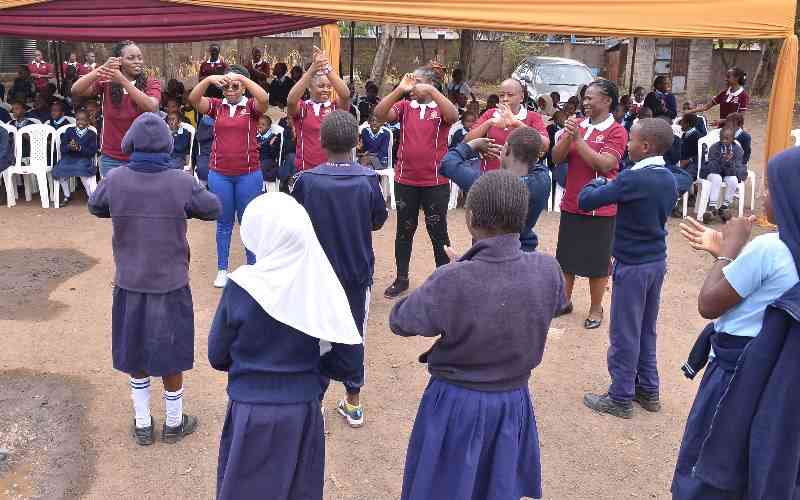×
The Standard e-Paper
Home To Bold Columnists

The staff of the Nairobi Hospital take pupils of Donholm Primary School in Eastlands, Nairobi, through steps of sanitizing hands as part of events to mark the 2023 International Handwashing Day and the International Infection Prevention Week, on October 19, 2023. [Photo, Courtesy]
Efforts by the government to improve health services in Kenya have continued to receive support, with the focus shifting from curative to preventive healthcare.